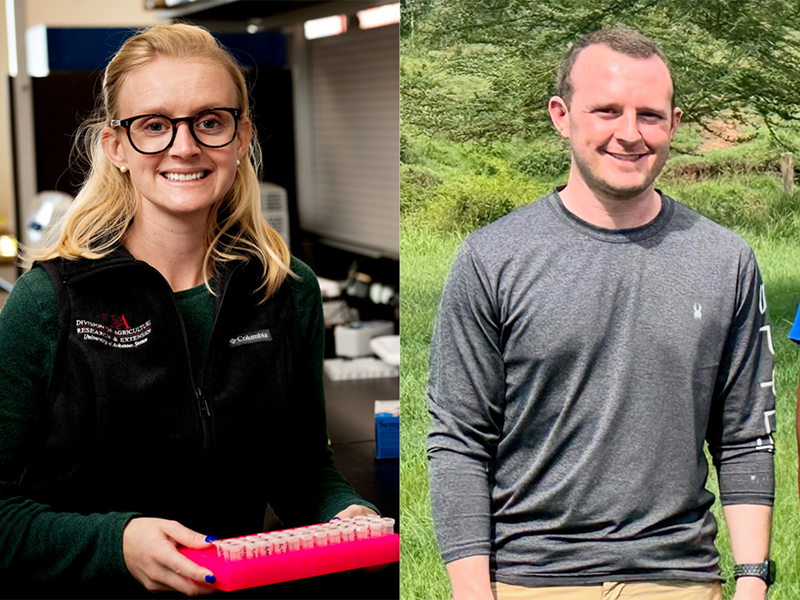
FAYETTEVILLE, Ark. – Two Arkansas Agricultural Experiment Station researchers are helping build a pathogen database for the Department of Defense.
In this episode of Food, Farms, and Forests podcast, Emily McDermott, assistant professor of medical and veterinary entomology, and Cameron Osborne, a postdoctoral fellow, discuss the REDI-NET project and how their research is contributing to building the database for the Department of Defense.
REDI-NET, which stands for Remote Emerging Disease Intelligence Network, is a collaborative initiative involving the University of Arkansas, the University of Notre Dame, and the Department of Defense. Its main goal is to "detect, predict, and contain" potential infectious diseases that could emerge in animals and be passed on to humans.
McDermott and Osborne explain how their work is helping develop standardized pathogen surveillance protocols to enhance the Department of Defense's readiness against emerging diseases. They discuss the project's objectives, the metagenomic approach used for disease detection, and the challenges and successes they've encountered along the way.
Tune in to learn how their research is shaping the future of global pathogen surveillance and protection.
Learn more about REDI-NET.
This work is supported by the US Army Medical Research and Development Command under Contract No.W81XWH-21-C-0001, W81XWH-22-C-0093 and HT9425-23-C-0059. The views, opinions and/or findings contained in this report are those of the author(s) and should not be construed as an official Department of the Army or Navy position, policy or decision unless so designated by other documentation.
To learn more about Division of Agriculture research, visit the Arkansas Agricultural Experiment Station website. Follow us on X at @ArkAgResearch, subscribe to the Food, Farms and Forests podcast and sign up for our monthly newsletter, the Arkansas Agricultural Research Report. To learn more about the Division of Agriculture, visit uada.edu. Follow us on X at @AgInArk. To learn about extension programs in Arkansas, contact your local Cooperative Extension Service agent or visit uaex.uada.edu.
About the Division of Agriculture: The University of Arkansas System Division of Agriculture's mission is to strengthen agriculture, communities, and families by connecting trusted research to the adoption of best practices. Through the Agricultural Experiment Station and the Cooperative Extension Service, the Division of Agriculture conducts research and extension work within the nation's historic land grant education system. The Division of Agriculture is one of 20 entities within the University of Arkansas System. It has offices in all 75 counties in Arkansas and faculty on five system campuses. The University of Arkansas System Division of Agriculture offers all its Extension and Research programs and services without regard to race, color, sex, gender identity, sexual orientation, national origin, religion, age, disability, marital or veteran status, genetic information, or any other legally protected status, and is an Affirmative Action/Equal Opportunity Employer.
Topics
Contacts
Jenifer Fouch, communications specialist
Arkansas Agricultural Experiment Station
479-502-9732, jfouch@uark.edu